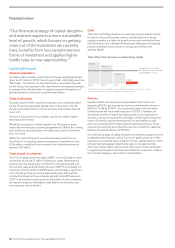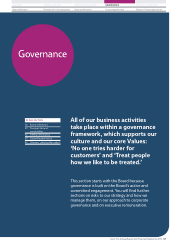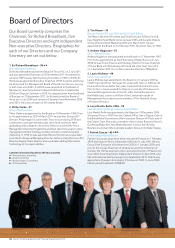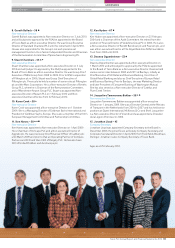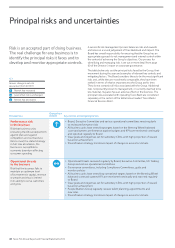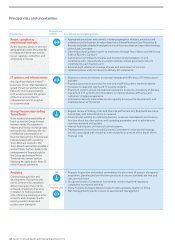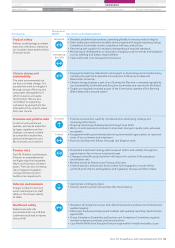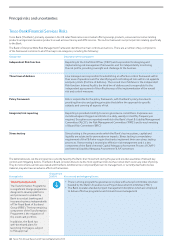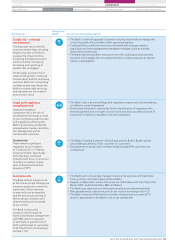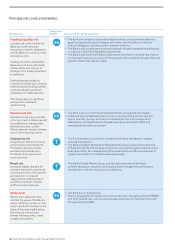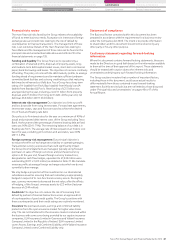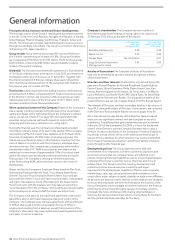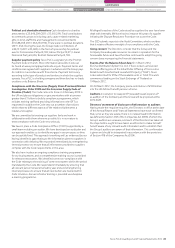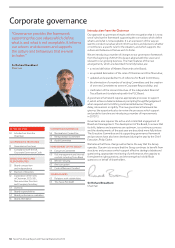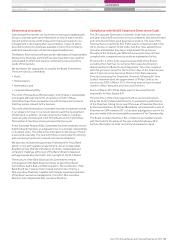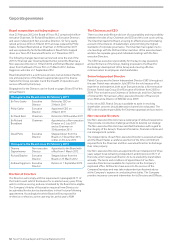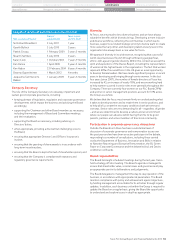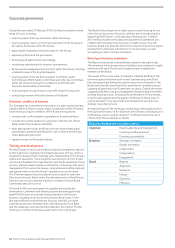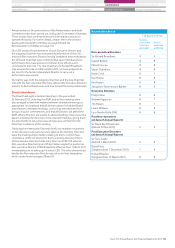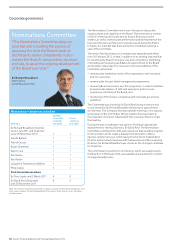Tesco 2012 Annual Report Download - page 50
Download and view the complete annual report
Please find page 50 of the 2012 Tesco annual report below. You can navigate through the pages in the report by either clicking on the pages listed below, or by using the keyword search tool below to find specific information within the annual report.
Principal risks and uncertainties
Principal risks
Change from
2010/11 Key controls and mitigating factors
Funding/liquidity risk
Liquidity risk is the risk that the
Bank has insufficient cash
resources to meet its obligations
as they fall due or can do so only
at excessive cost
Funding risk is the risk that the
Bank does not have sufficiently
stable and diverse sources of
funding or the funding structure
is inefficient
External market conditions
continue to exhibit signs of stress
(with wholesale funding markets
constrained) and significant
competition for retail deposits
The Group relies on significant
amounts of on demand
retail funding
The Bank aims to have a conservative Balance Sheet structure with prudent risk
appetite supported by explicit targets and metrics which enable it to meet its
financial obligations, including under stressed conditions
The Bank holds a significant and diversified stock of highly marketable liquid assets,
in excess of internal and regulatory requirements
The Bank’s significant retail deposit base means that there is currently less reliance
on wholesale markets as a source of funding and historic practice indicates that such
deposits tend to be relatively stable
Operational risk
Operational risk is the potential
error, loss, harm or failure caused
by ineffective or inadequately
defined processes, system
failure, improper conduct, human
error or from external events
Outsourcing risk
A significant number of services
and processes are provided by
third party service providers
and a key operational risk is
the failure of an outsourced
service provider
People risk
Increased market demand for
specialist personnel could result
in increased costs of recruitment
and retention or reduced
organisational effectiveness if
a sufficient number of skilled
staff cannot be employed
The Bank’s aim is to minimise all operational risks and reputational impacts
A Risk and Control Self Assessment process is used by the business to identify,
assess, quantify, monitor and report its operational risks and management’s
effectiveness in mitigating them. Regular reporting is provided to RMC and
remedial actions taken as required
The Procurement policy provides consistent and robust standards for supplier
sourcing and selection
The Bank’s Strategic Relationship Management process enables the monitoring
of the performance of third-party outsourcers and suppliers against agreed service
level agreements, the management of the relationships and the improvement of
supply or termination of contract where appropriate
The Bank’s People Matters Group, an Executive committee of the Bank,
oversees key aspects of people risk, including talent management, performance
management, retention and succession planning
Market risk
Market risk is defined as the
risk that the value of the Bank’s
assets, liabilities, income or costs
might vary due to changes in the
value of financial market prices;
this includes interest rates,
foreign exchange rates, credit
spreads and equities
The Bank has no trading book
There is low appetite for exposure to interest rate risk in the banking book (‘IRRBB’)
and other market risks, such as credit spreads, which are monitored and reported
through ALCO and RMC
46 Tesco PLC Annual Report and Financial Statements 2012


